Music for Two Violins: Personal Reflections on a Forgotten Genre
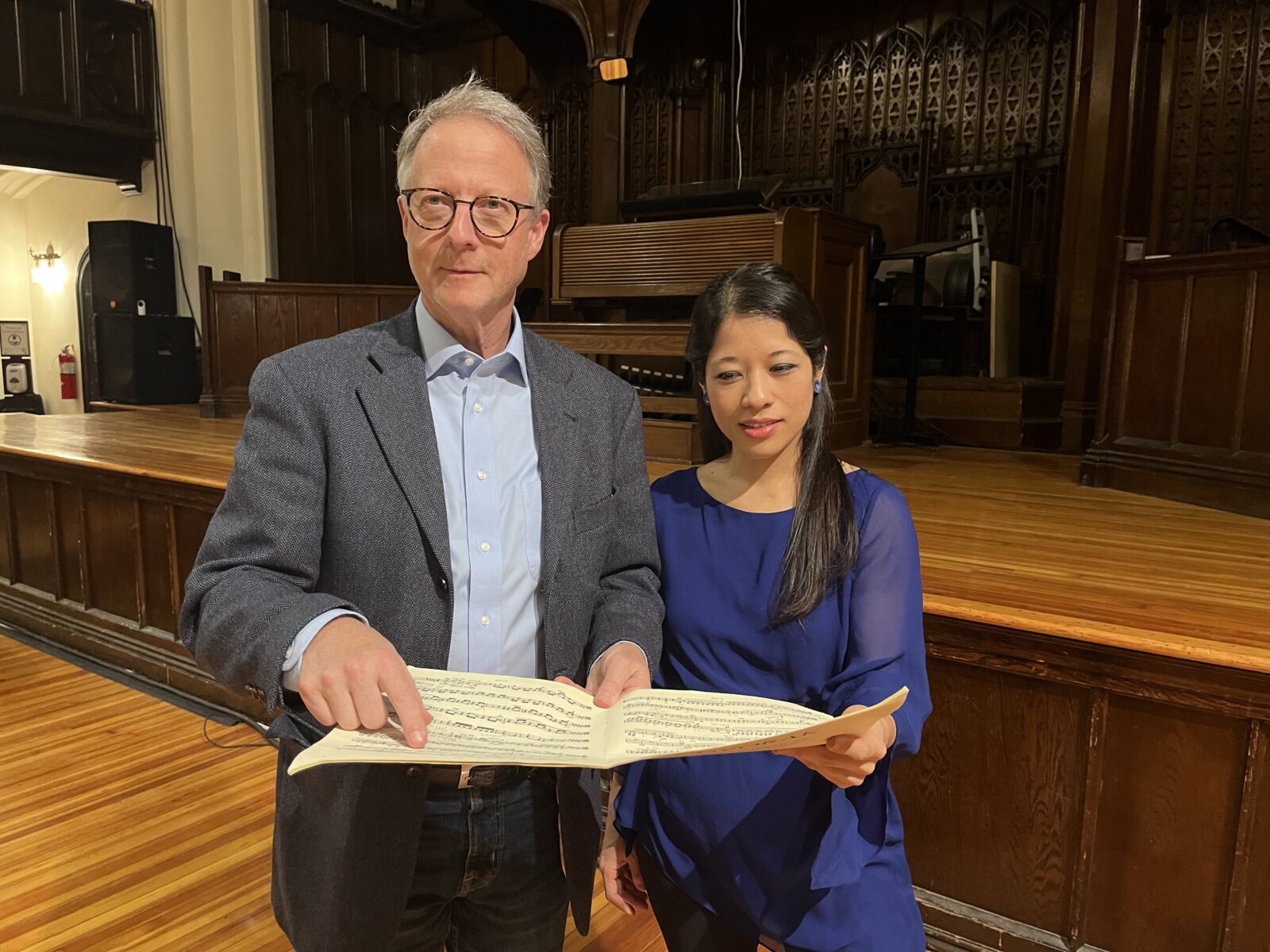
For the past seven years I have had the pleasure of discovering a corner of the chamber music repertoire that I now consider to be undervalued and under-explored: music for two violins. Like most violinists, I had occasionally read through some pieces for this combination for fun or convenience, but my only real performance exposure to this niche was within the context of new music. In 1981, while still an undergraduate student, I gave the U.S. premiere of two pieces by Alfred Schnittke as part of an all-Soviet chamber program.
Like all lovers of the violin and its music, I was drawn in my youth to the iconic Bach Double Concerto, soon followed by an exploration of the two-violin concertos by Vivaldi (there are well over 20!). But without the full body and color of an orchestra to support them, along with the grounding of a bass line, I didn’t think that two solitary violins could sound like much more than a lighthearted Vaudeville routine.
My perspective changed significantly in 2017 with the abrupt withdrawal of two colleagues for a trio concert. With only two weeks’ notice (at a well-known university series), I faced the difficult choice of canceling my participation in the series, presenting a hastily cobbled solo violin recital, or building a new program from scratch.
One month earlier, I was fortunate to have met the terrific violinist (and fellow ACMP coach) Emilie-Anne Gendron, whose creativity and intellect match her extraordinary violin playing. When I told her my dilemma at having no program two weeks before the concert, and that I would not subject an audience to a one-hour program of solo violin music, the plausibility and efficiency of a two-violin program began to come into focus as Emilie graciously volunteered. The repertoire had to be carefully chosen since she was to be out of the country for 10 of those 14 days. We had only one day to set the program, then two days after her return to refine and polish. But what repertoire for a solid hour of music?
I had long been intrigued by a story my college music history professor, Dr. Fritz Kramer, shared about private chamber music readings in Vienna in the 1780s, where composers would come together to play through each other’s music in friendship and respect, and maybe to borrow a few ideas. In 1783 one of these gatherings featured a string quartet which included Haydn’s court concertmaster, Luigi Tomasini on first violin, Joseph Haydn himself on second, Wolfgang Mozart on viola, and Luigi Boccherini on cello. Oh, to have been a fly on that wall!
Practically speaking, building a program of music from the Classical Era (c.1750-1820) was going to be easier than jumping around in history, and these composers stayed true to Enlightenment ideals: their compositions were well organized in structure and sensibility. I could pay tribute to these four composer-performers (and my college mentor) now that I had the privilege to play with Emilie.
In the end, our program included the E major duo by Boccherini (bright, perky, lightly flashy), and Duo Concertante by Tomasini (his virtuosic writing was like being shot out of a cannon). Haydn’s contribution was his own arrangement of a theme and variations from an early string quartet (opus 17 no.3), and we ended with an arrangement of Mozart’s first Duo for violin and viola, with the viola part tastefully transposed to violin…I know, no C string, but neither of us play viola professionally!
The performance was both successful and enjoyable for us and thus began my collaboration with Emilie and other violinists, discovering underplayed rarities, often by well-known composers, showing different facets of their compositional gifts.
The repertoire for two violins is surprisingly vast. An excursion into the musician’s friend, Imslp.org, will reveal hundreds of pieces for this combination in the site’s broad category of time periods: Baroque, Classical, Romantic and Modern. Keep in mind that this website lists only works that are not under copyright protection. With a little patience and persistence, one can discover many more pieces from publishers’ catalogues, libraries, streaming services, and even the most basic web searches.
From the Baroque era, there is not as much to choose as I imagined, as most music was tied to compositional structures supported by bass-line continuos. Some of the extant pieces are tied to French court musicians who could exhibit a surprising level of technical virtuosity and panache. Some of the more interesting works I have performed are from the end of this era by consummate violinist-composers like Guignon, Leclair and Telemann.
The Classical Era explodes with two-violin works at all levels of difficulty, fueled in part by the interest of all social classes to play music in the home, and aided by the proliferation of instructional works by pedagogues of the Paris Conservatory and other schools, advancing the baseline level of technique through readily available publications. The four composers cited above are representative of the former concept, and later, the Conservatoire Triumvirate, Kreutzer, Baillot and Rode, as well as De Beriot, Dancla, Alard, etc.
The Romantic Era suffers from a dearth of publication that come across as more personal statements perhaps overshadowed by the grandeur of symphonic and operatic palates. Spohr is an exception, with his conservative but challenging offerings.
The early twentieth century revives the genre as a vehicle for exploration and experimentation. As in any medium, Reger and Hindemith are always present, presenting traditional forms with personalized vocabularies, but the real gems are by Honegger, Prokofiev, Bartók, and the rarely-heard British composer Alan Rawsthorne. Since the 1970s there has been a steady stream of compositions that utilize both the conversational nature of two violins and their sonic palate that may include vocal, polyphonic, and extended techniques.
As with all artistic projects, there is never a terminus or conclusion. My exploration will continue indefinitely, since everywhere I look, there are new discoveries to be made and never enough time to practice!
Gabriel Schaff is in the ACMP Coach Directory
Gabriel Schaff ©2024
More Articles
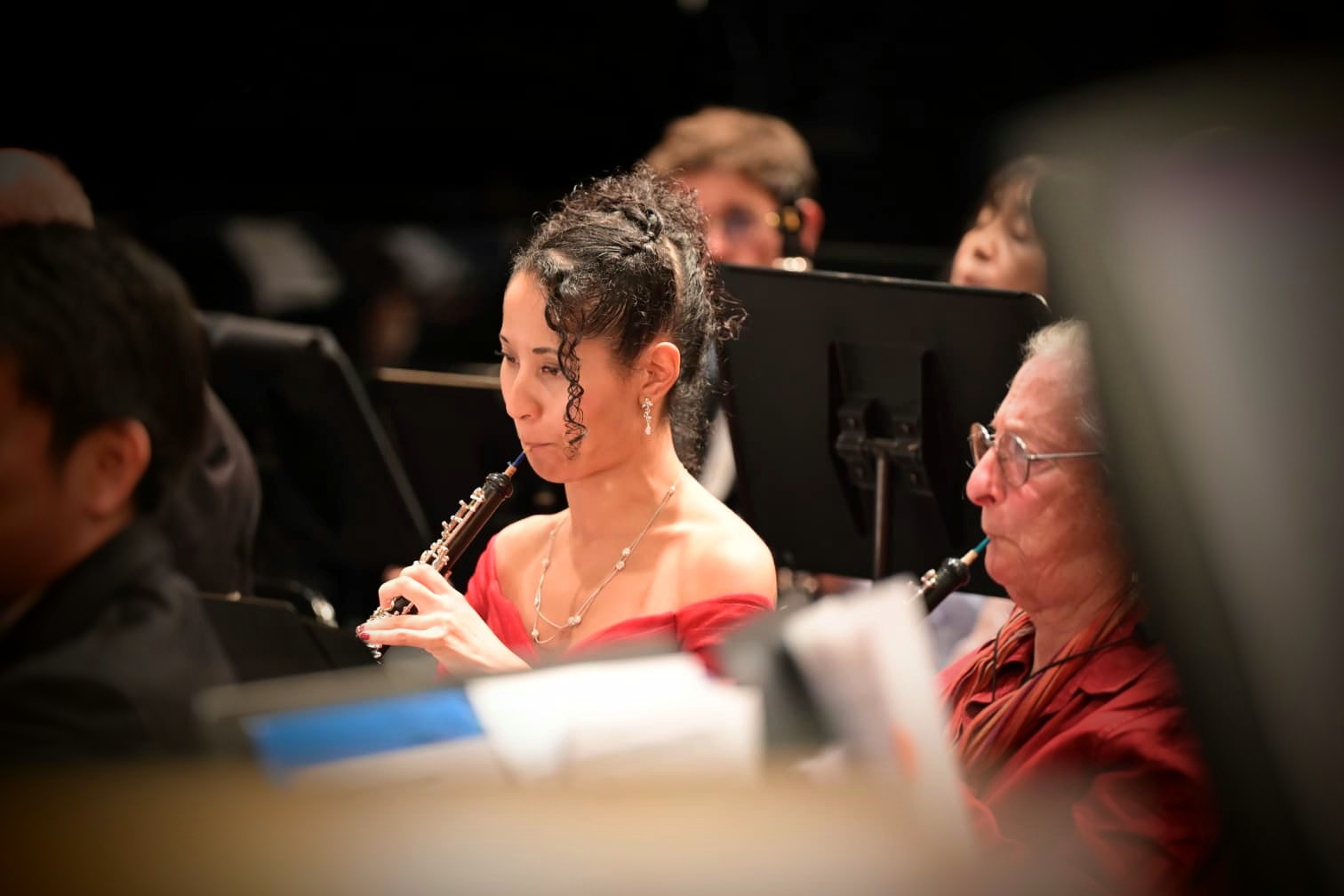
Kayana Jean-Philippe: The serious business of an amateur oboist
When it comes to the oboe, Kayana Jean-Philippe is what you might call a serious amateur – someone who pursues her passion at a high level, but does not make a living at it. One of her most consistent musical outlets has been the United Nations Symphony Orchestra, which she joined 10 years ago and is principal oboist. Another musical outlet is ACMP, which she said has connected her with new people and new musical opportunities.Read More ↗
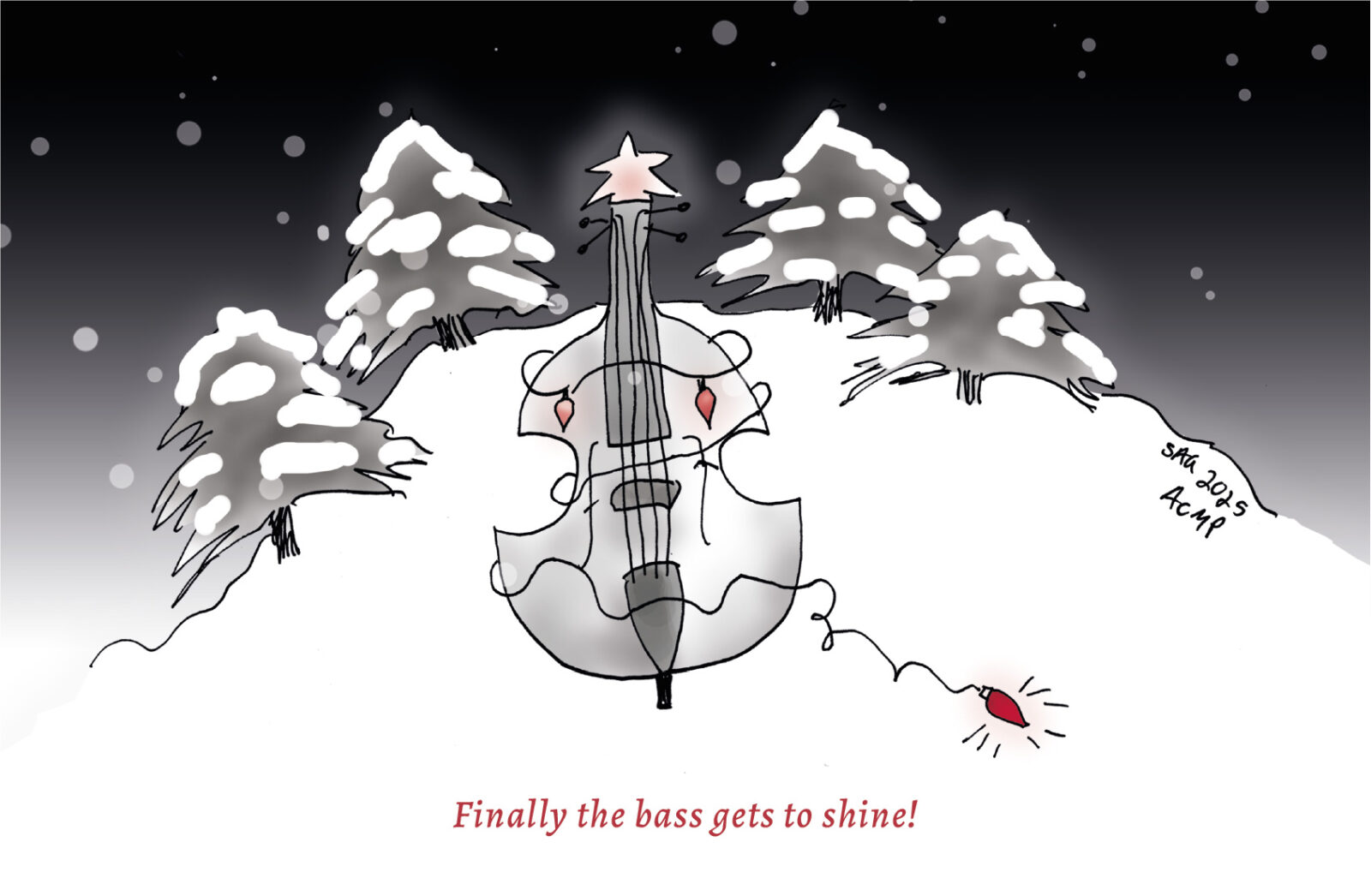
Announcing the 2025 Holiday Caption Contest Winners!
ACMP's 4th annual Holiday Caption Contest was a success, with 69 captions from 41 ACMP members. This year's winners are Valerie Matthews, Peggy Reynolds, and Matthew Greenbaum. Congratulations to everyone who came up with so many wonderful captions for this year's cartoon!Read More ↗
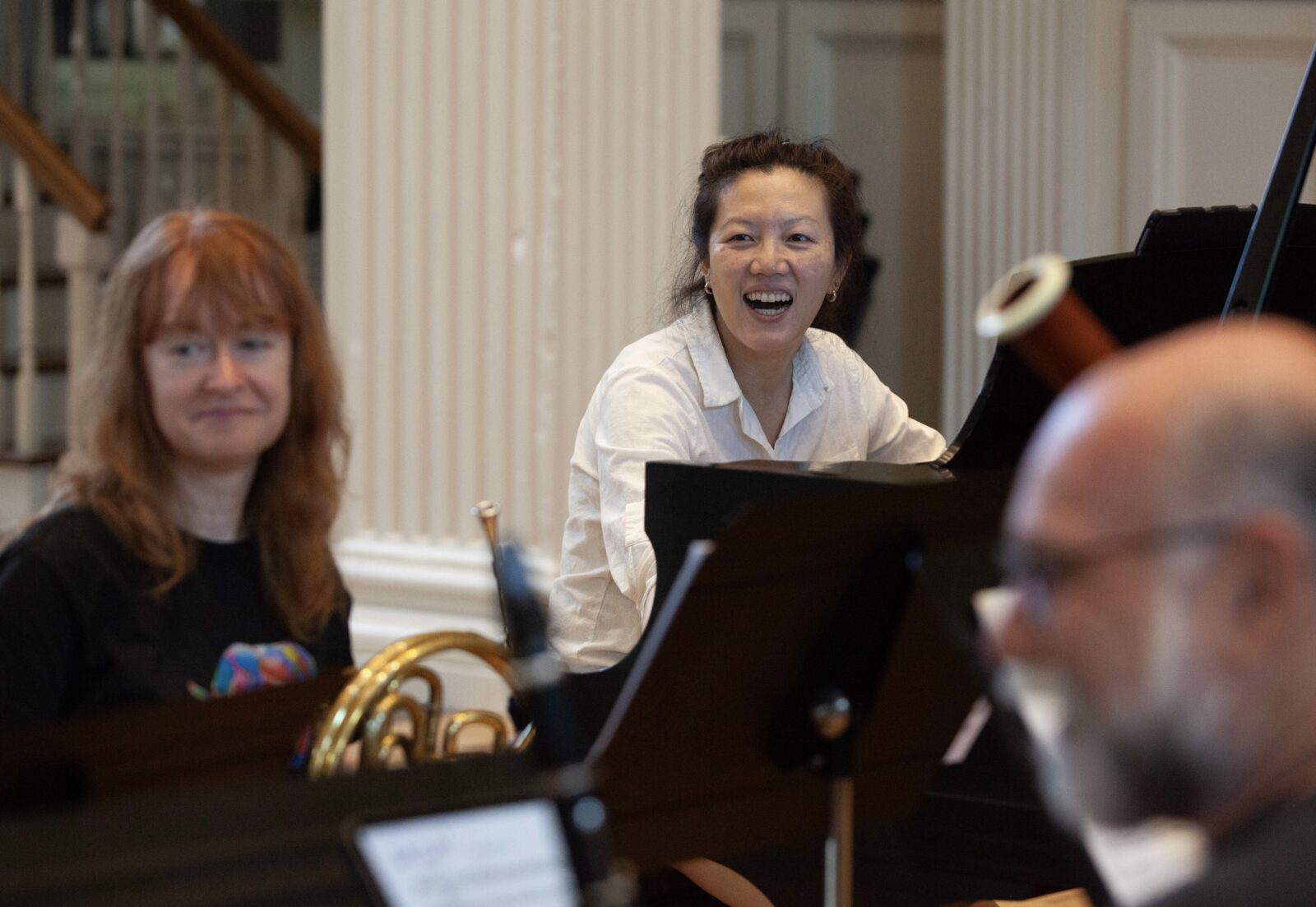
Announcing ACMP’s 2026 Workshop/Community Music Grantees
ACMP is proud to announce its 2026 Chamber Music Workshop and Community Music grantees. This year we awarded $168,000 in grants to 73 chamber music workshops and semester- or year-long programs in 10 countries, and 31 US states. (Photo by Claire Stefani.)Read More ↗

Mystery Donor Reveal: An interview with Louise K. Smith
An anonymous member of ACMP recently spearheaded a fundraising initiative for ACMP in the two week lead-up to Giving Tuesday, offering a $25 gift for each donation received from November 18, 2025 through Giving Tuesday (December 2.) This mystery donor just revealed her identity: Thank you, Louise K. Smith! I asked Louise some questions about her background as a pianist, involvement with ACMP over the years, and about her recent matching grant idea.Read More ↗
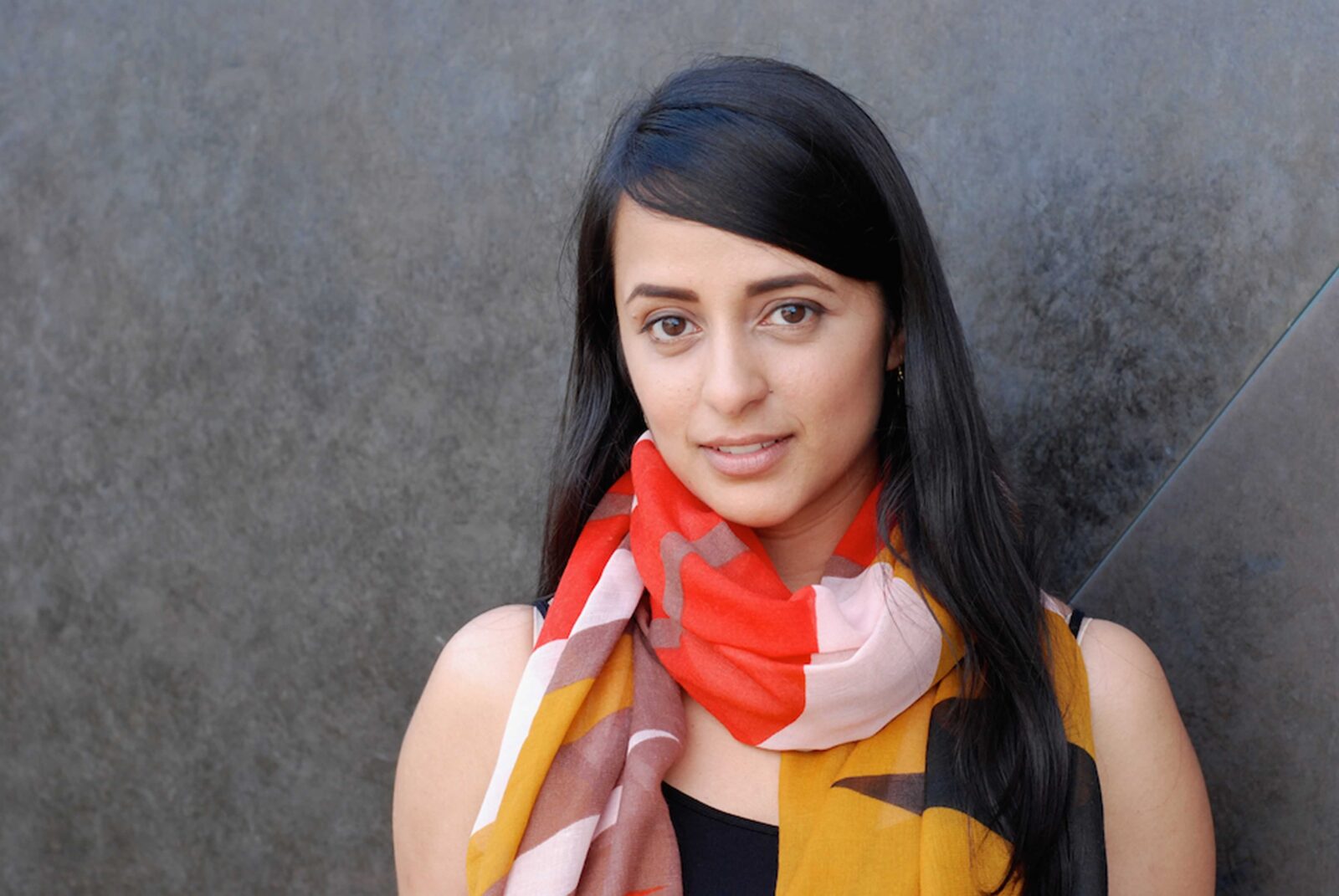
A Bridge from West to East – The Chamber Music of Reena Esmail
After a recent visit to her father's hometown in India, ACMP member pianist Sonya Subbayya Sutton returned to the United States with a renewed curiosity about her Indian culture and music. This led her to explore the music of Indian American composer Reena Esmail. Read about Reena's own voyage of discovery in Indian music and check out links to her scores and recordings.Read More ↗
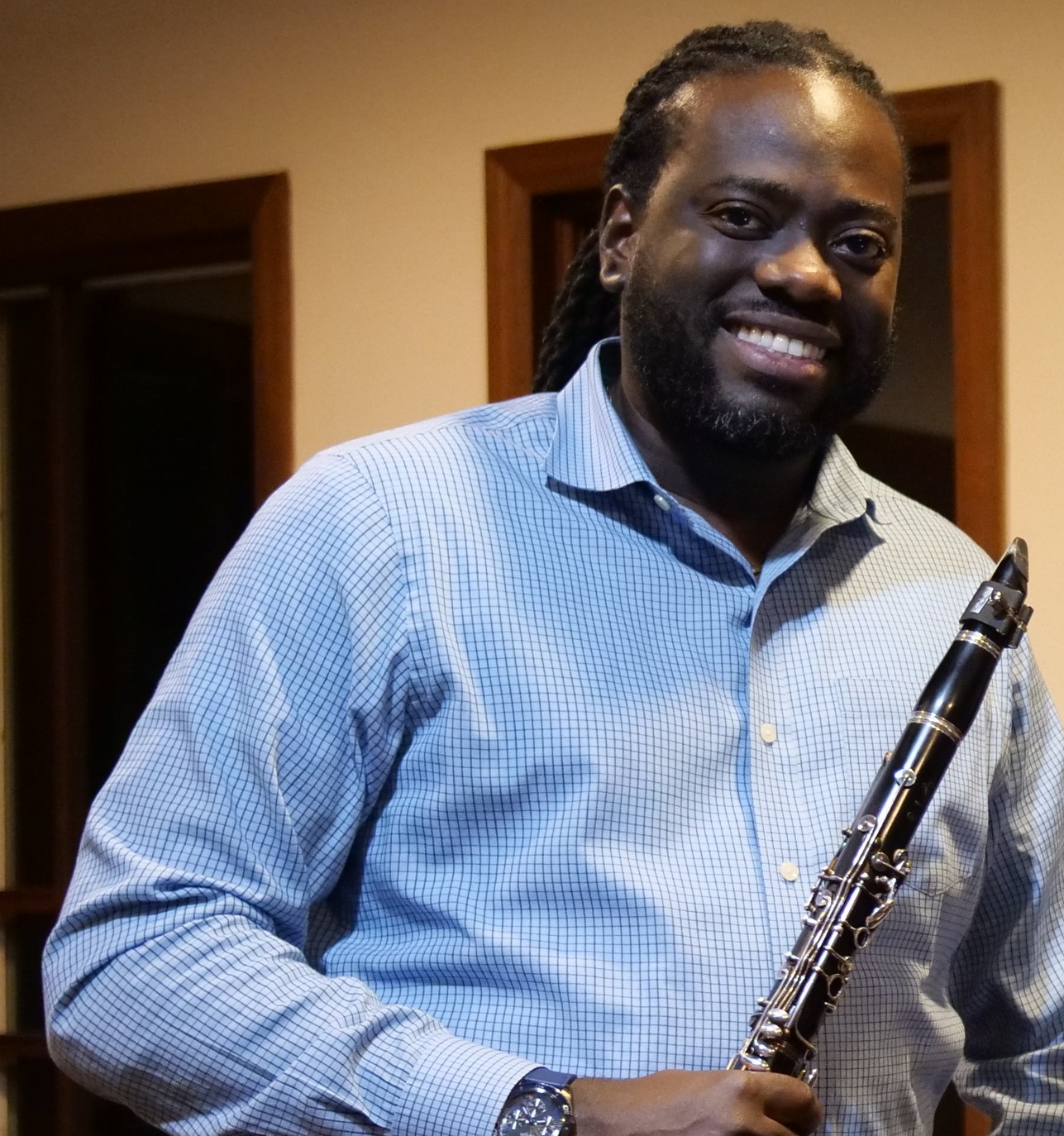
ACMP Member of the Month: Kwame Lewis
Kwame Lewis is not your typical accountant. Born and raised in Trinidad, he emigrated to the United States in 2003 at the age of 23 and set about building his career. Along the way, he lived in the Washington area for an extended period, got married, had two boys who are now 5 and 3 years old, and since 2019 has lived with his family in Melrose, Mass., near Boston. One constant through his journey, though, has been his love of the clarinet and chamber music.Read More ↗
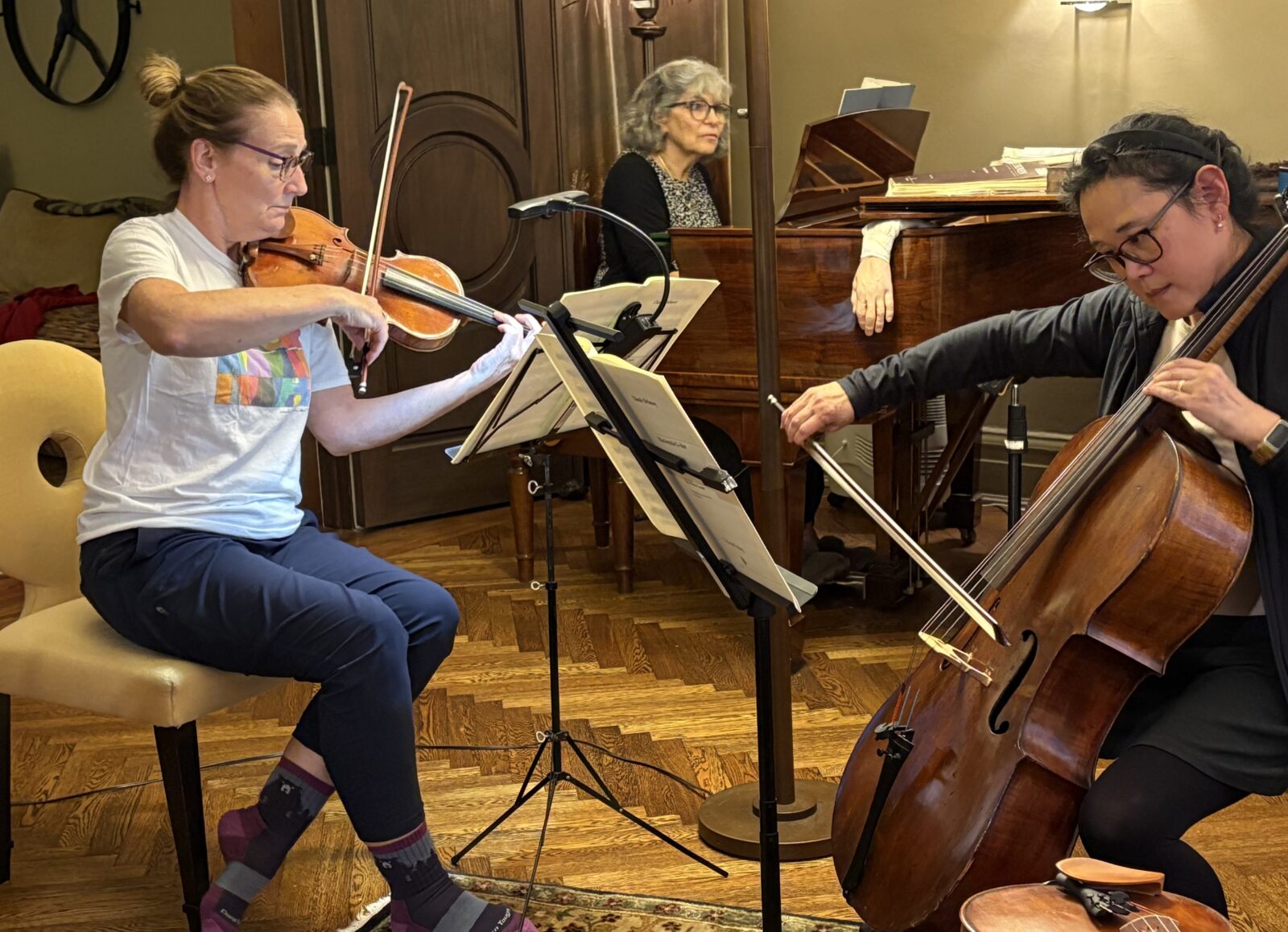
Chamber music for a cause: amateur musicians support Music for Food
ACMP member pianist and violist Arlene Hajinlian is as active a chamber music organizer as she is in sharing her time and space for social causes. This Thanksgiving holiday weekend she came up with a way for adult amateur chamber musicians to have a lot of fun while raising money to support New Yorkers in need: three consecutive chamber music parties as a benefit for Broadway Community through Music for Food.Read More ↗
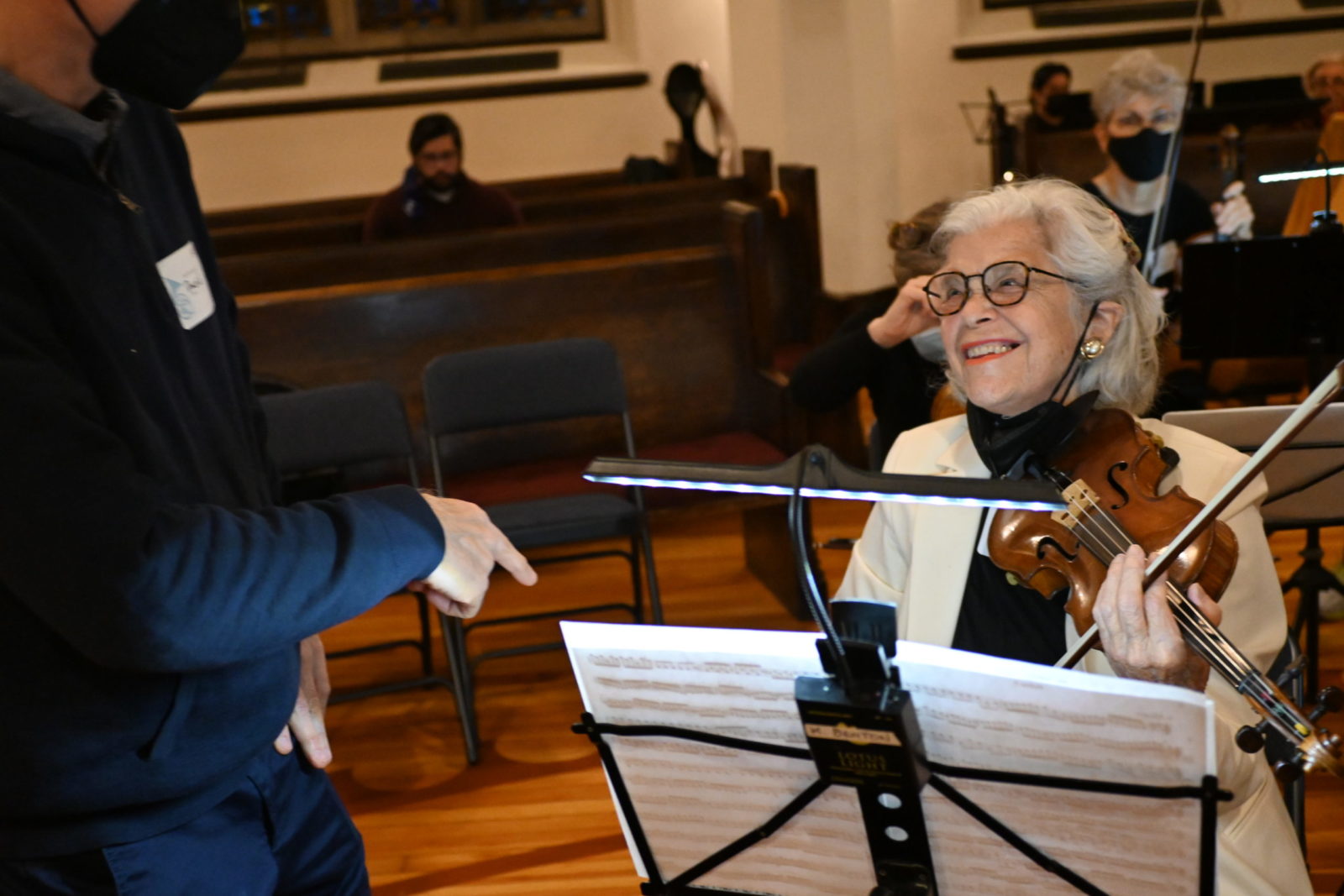
Remembering Kate “Kitty” Bigelow Benton (March 29, 1935 – November 2, 2025)
ACMP mourns the loss of Kitty Benton (1935-2025), a former board member, board secretary and longtime editor of the ACMP newsletter. Read about Kitty's life and watch a video of Kitty telling her favorite stories about ACMP in June 2021.Read More ↗
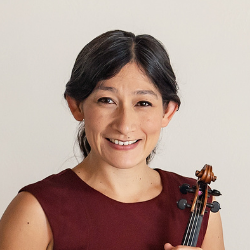
New Video – Meet The Artist: Harumi Rhodes
ACMP Executive Director Stephanie Griffin hosts a lively Zoom conversation with violinist Harumi Rhodes about her musical upbringing and career with the world-renowned Takács Quartet.Read More ↗
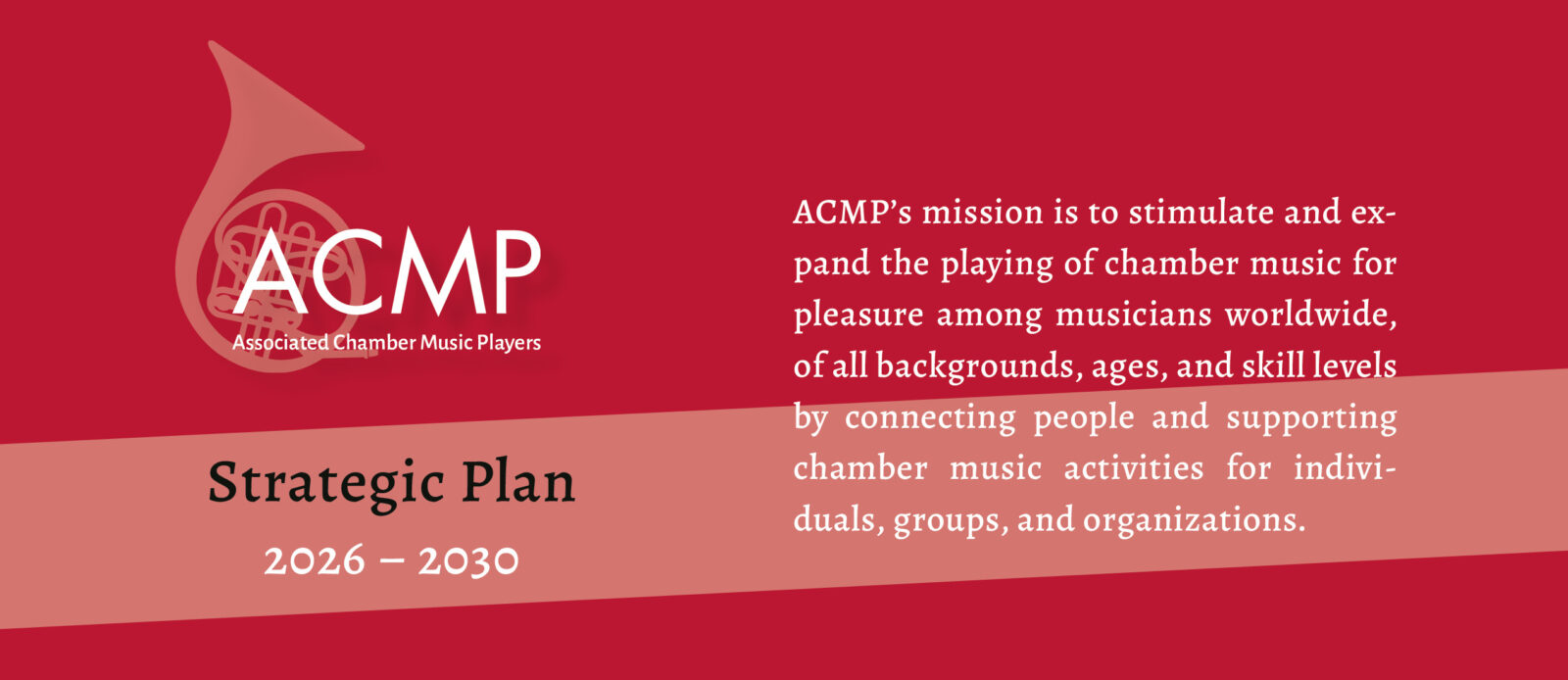
ACMP Strategic Plan for 2030
For the past several years, ACMP’s membership has grown dramatically, as has the popularity of its programs. Building on this momentum, ACMP’s Board and Executive Director completed a strategic plan to chart a course for the organization for the next five years. ACMP’s Board and Executive Director developed a new vision for the organization and a plan to strengthen member services, grants, operations, and finances to advance ACMP’s mission by 2030 and beyond.Read More ↗
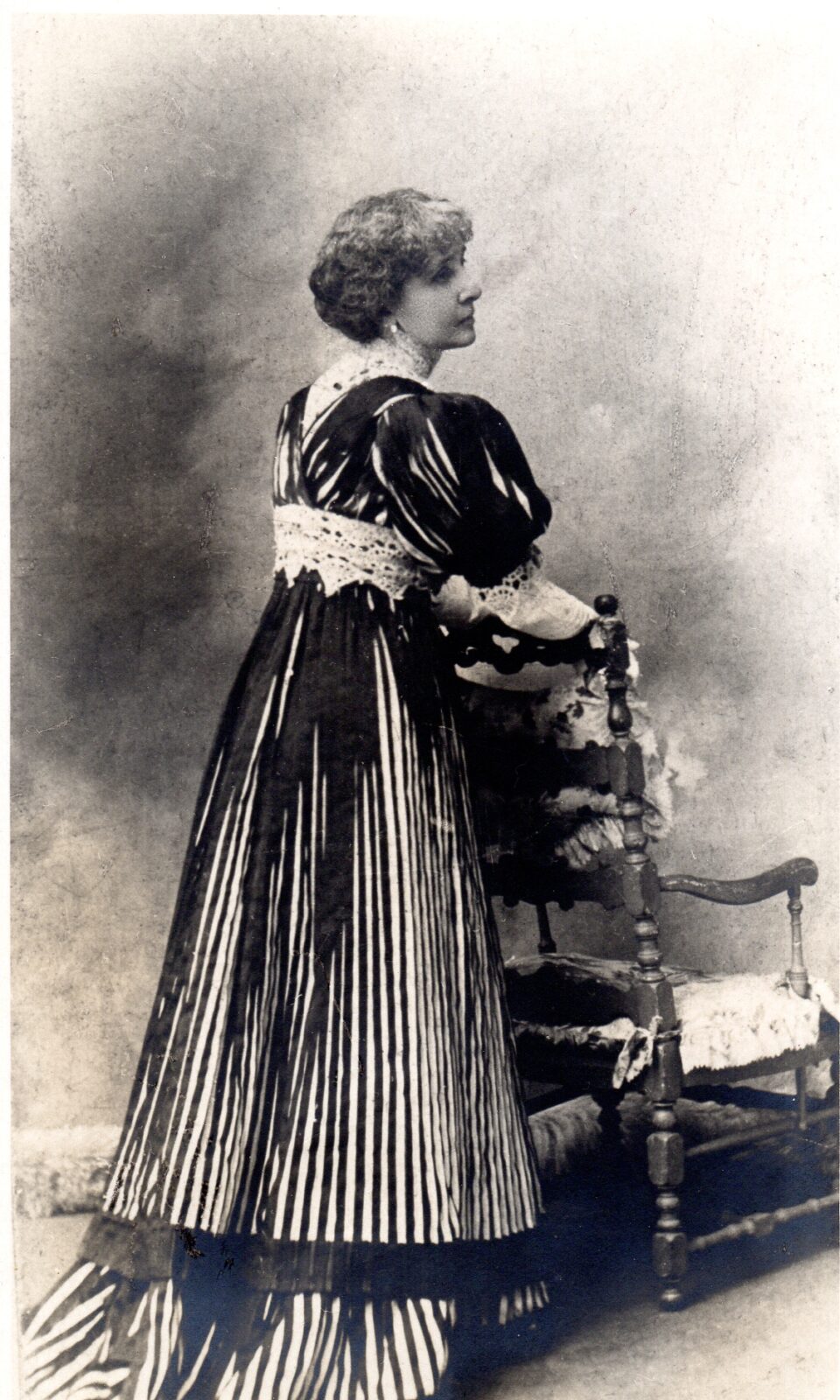
Drab, Inconspicuous, and Quiet No More
Washington, D.C.area pianist and choral conductor Sonya Subbayya Sutton is a passionate advocate of the work of women composers. Read about some of her favorite women composers and discover new chamber repertoire from her list.Read More ↗
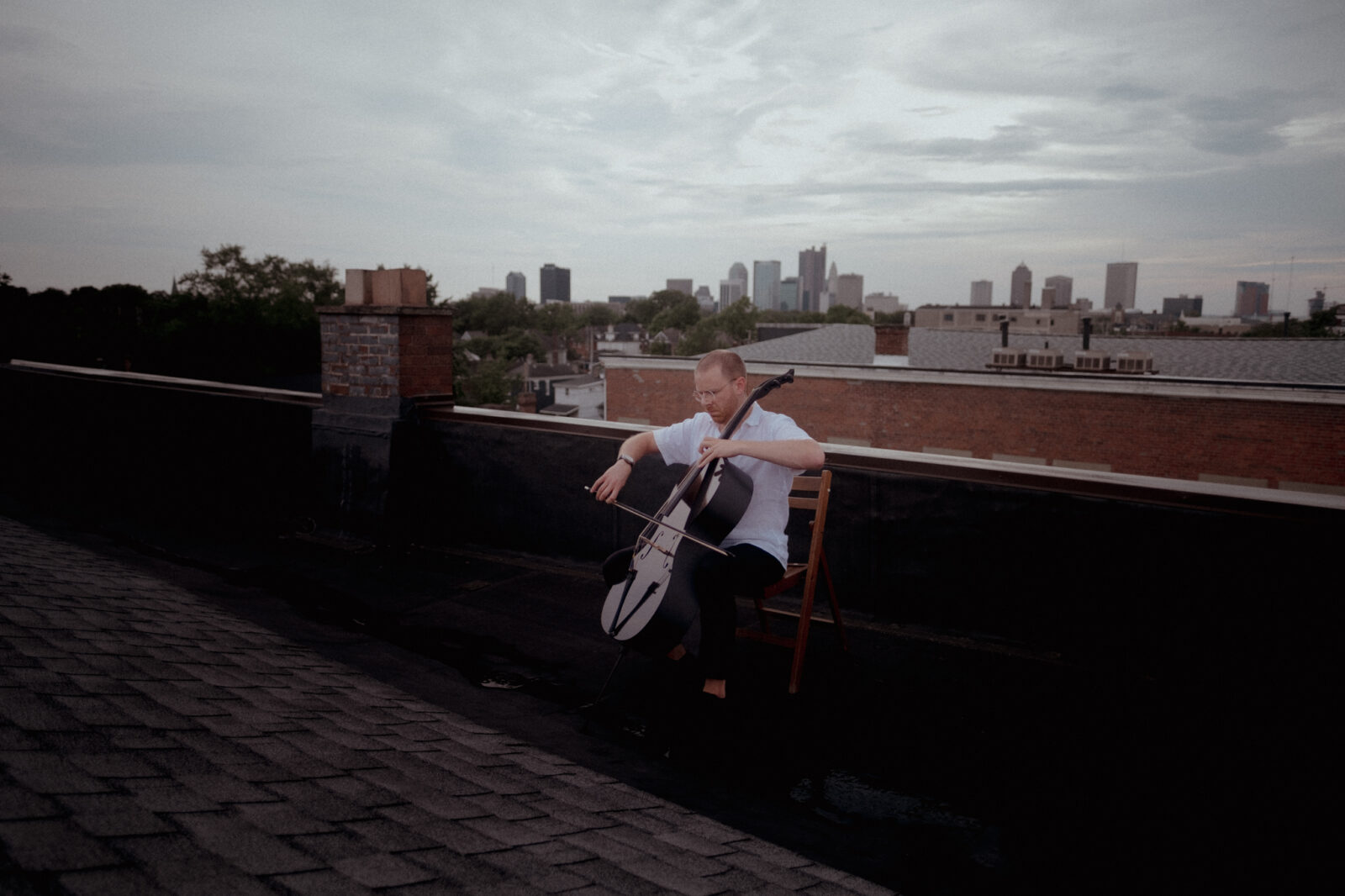
Andrew Brush: An amateur cellist with a global reach
After ACMP’s modest beginnings nearly 80 years ago, ACMP has grown to have a global membership, and perhaps nobody embodies this boundary crossing more than Andrew Brush. With his cello in tow, he splits his time between his home in Columbus, Ohio, and Buenos Aires, with visits to Europe and Istanbul, where his wife is from. Along the way, he has developed diverse musical interests, with influences ranging from Argentina to Mali. We caught up with Andrew recently after he had returned to Columbus, where he serves as a member of the ACMP North American Outreach Council.Read More ↗
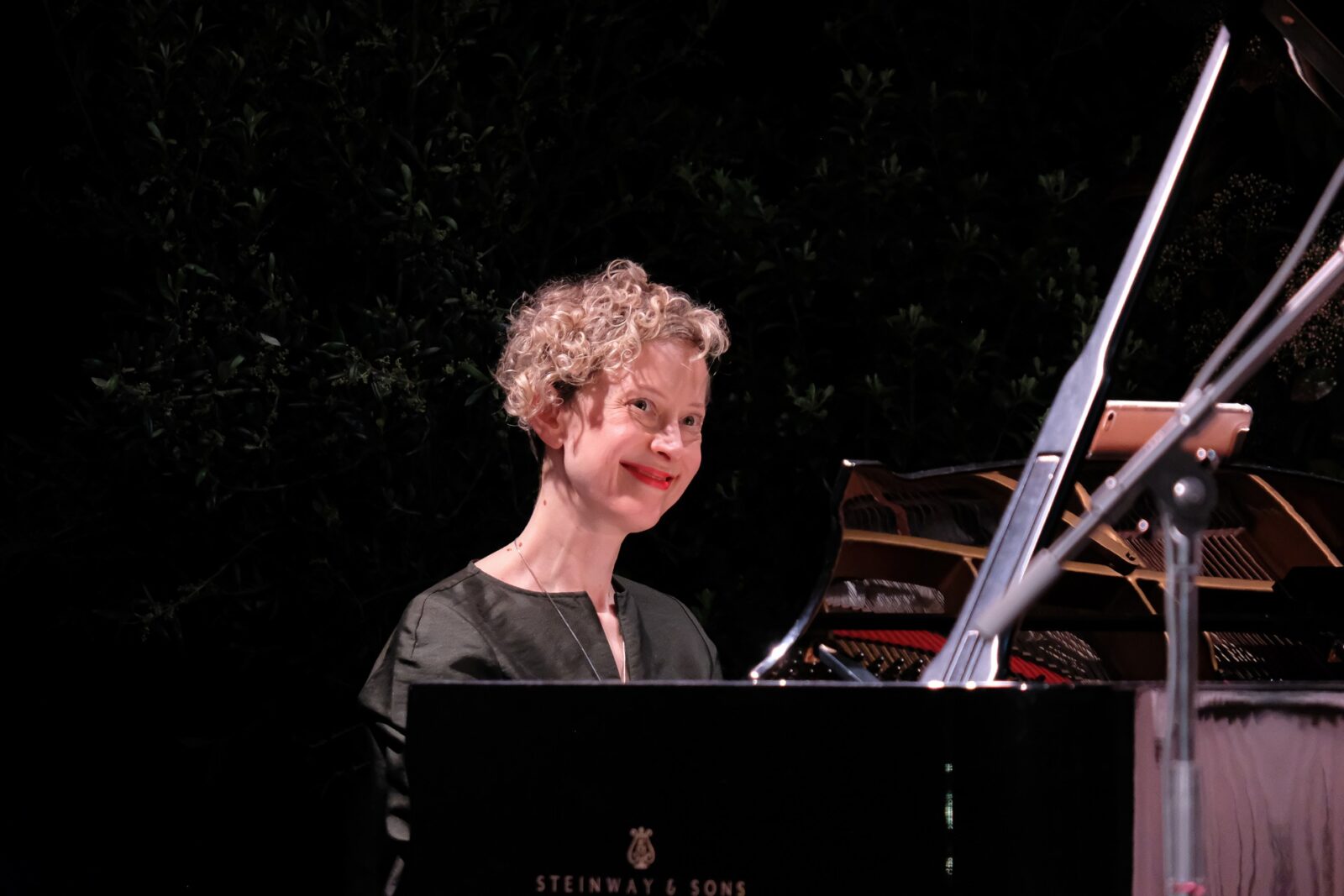
Befriending Performance Anxiety: simple tips for success
Performance anxiety is a universal experience, a survival mechanism that is hard-wired. Many of us react with shaky hands, lack of focus, shallow and fast breathing, rapid heart rate, and even feeling queasy. This is all perfectly natural - our protective sympathetic nervous system comes online to save us from danger, real or imaginary! Join Dr. Xenia Pestova Bennett for a free online webinar about managing performance anxiety on Thursday, October 30th at 6pm UK/Ireland time.Read More ↗
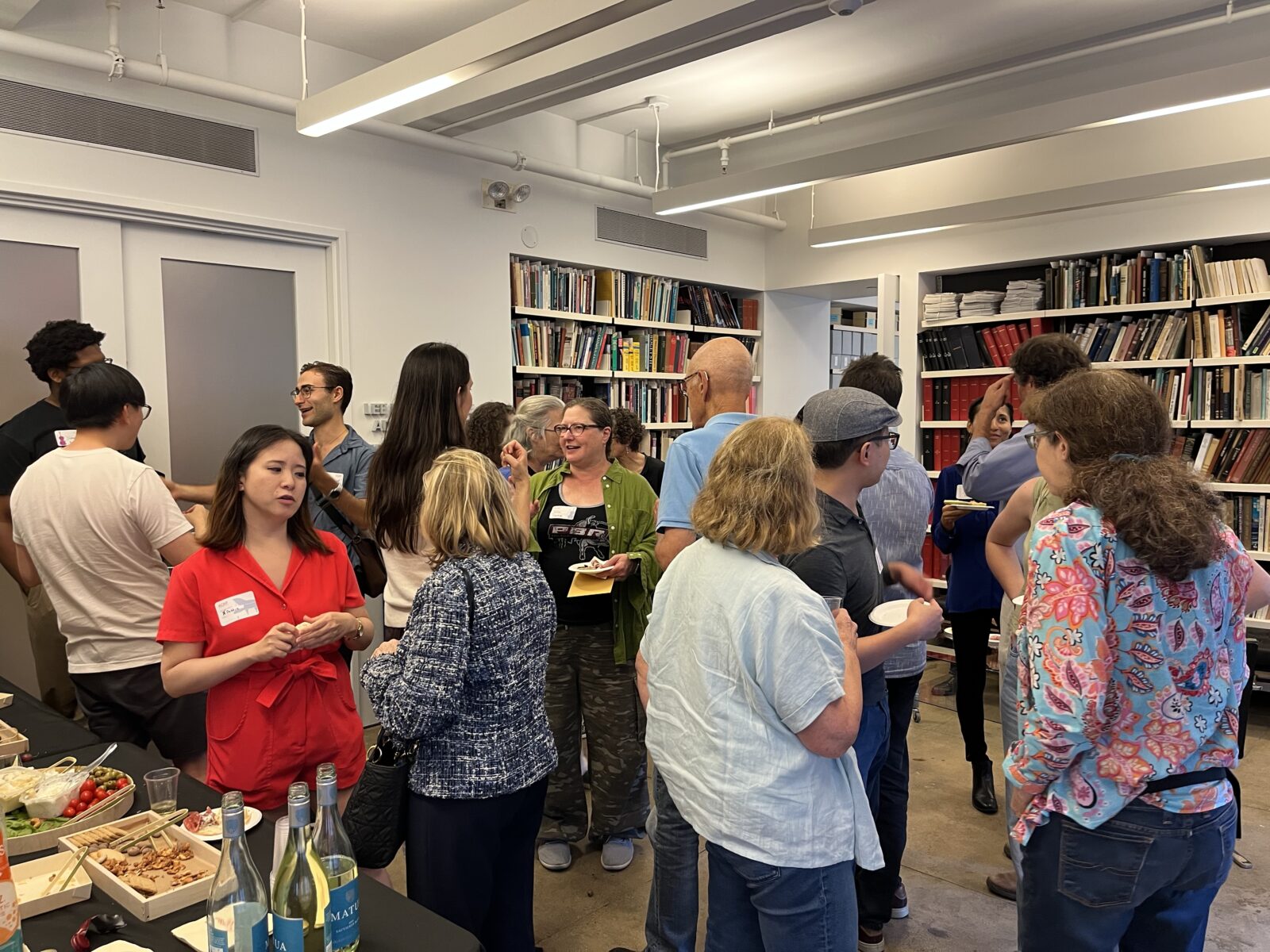
The Great American Play-In: ACMP and ACO
On Saturday, September 13 ACMP embarked on its first collaboration with the American Composers Orchestra (ACO). Together we organized a Play-In focused entirely on music by twentieth and twenty-first century American composers. Over the course of three hours, forty-five musicians discovered sixteen pieces or sets of pieces by a wide range of American composers, spanning from 1896 through 2025.Read More ↗
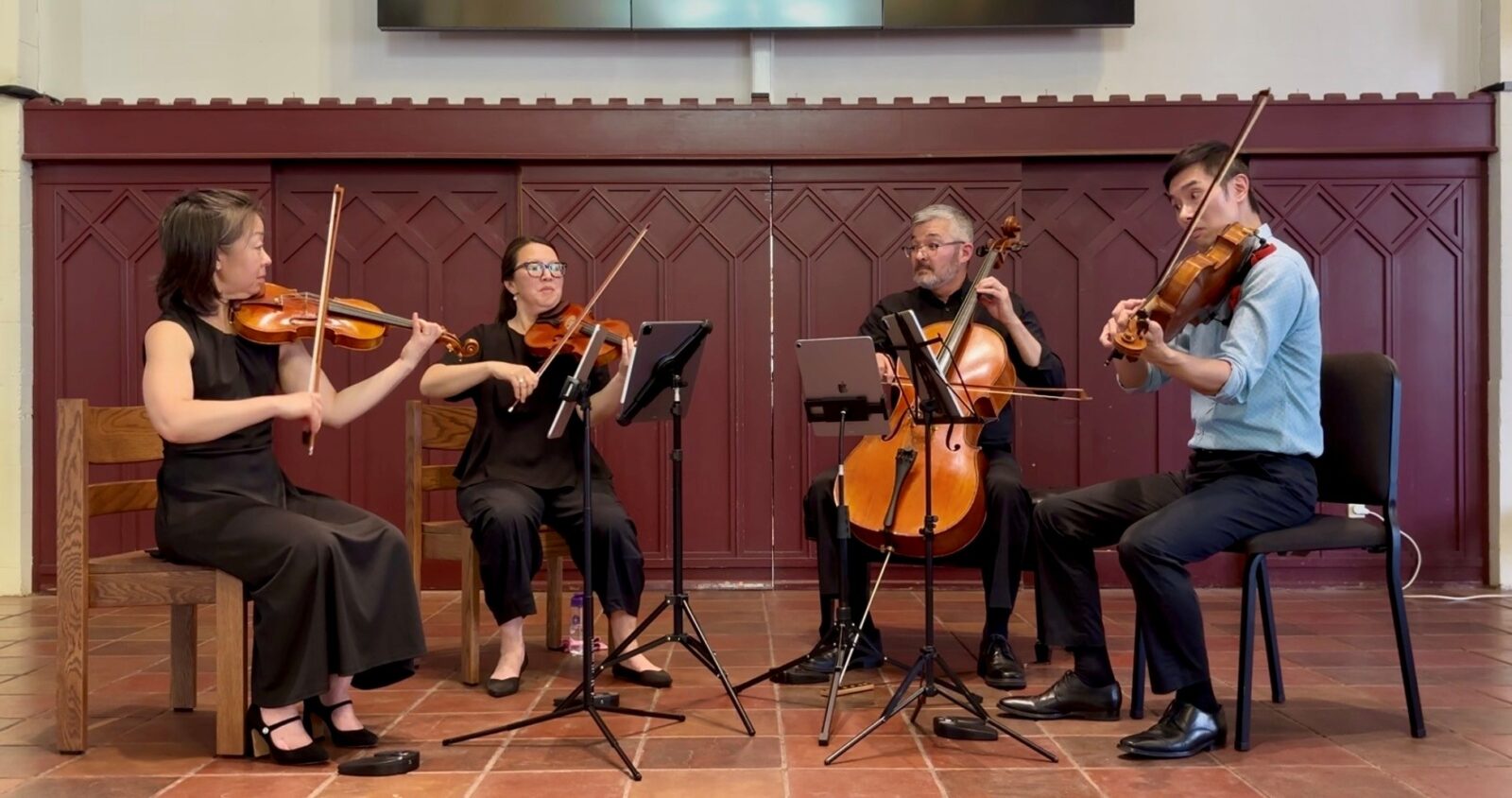
Just Play Concert: Exploring New Voices and Old Masters with the Tarka String Quartet
Thanks to a “Just Play” grant from ACMP, the Tarka String Quartet—Sue Soong and Julie Park on violin, Kevin Jim on viola, and Angus Davol on cello—recently shared a program in San Diego that reflected their passions: exploring new voices by women composers alongside the great works of the quartet tradition.Read More ↗
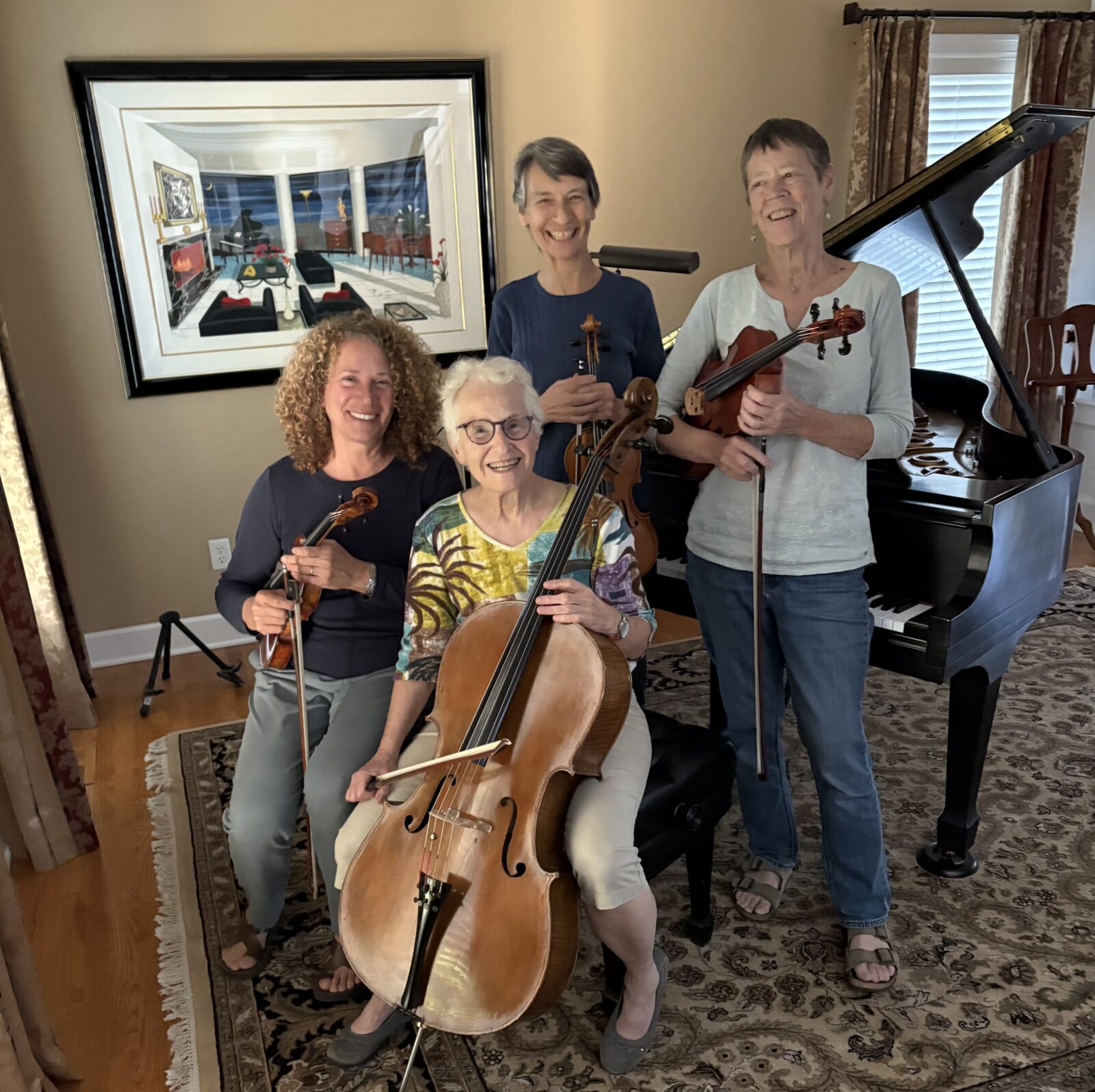
ACMP Members of the Month – October 2025
Playing in a regular string quartet is kind of like having a regular foursome in golf – everyone needs to be of roughly similar ability, and they also need to get along. When those two dynamics come together, the result can be a lasting chamber group that brings enduring friendships. Such is the case with our Members of the Month for October – Ruth Sklarsky, Barbara McIver, Ellen Henry and Kathy Lewis, residents of the Rochester, N.Y., area who have played in a string quartet for more than a decade. They got together and collectively answered a few questions about their musical journey.Read More ↗
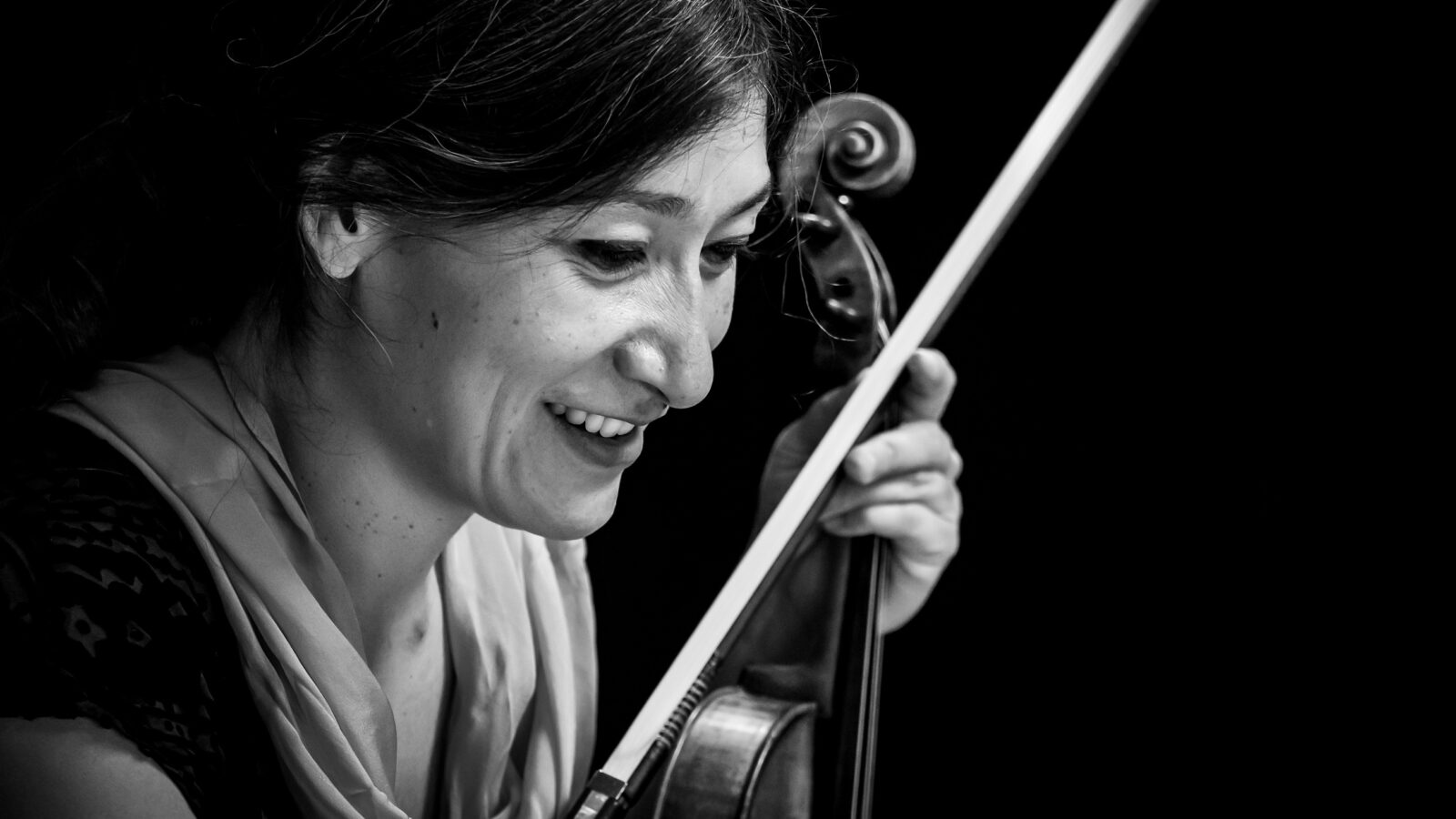
ACMP Event: Meet Harumi Rhodes
Join ACMP’s Executive Director Stephanie Griffin on Saturday, November 1 at 2pm Eastern time for a lively discussion and Q and A with violinist Harumi Rhodes. Harumi is the daughter of two famous chamber musicians: Stephanie’s former viola teacher, Samuel Rhodes (Juilliard Quartet) and violinist Hiroko Yajima (Mannes Trio.) Find out more about Harumi’s early life in that celebrated chamber music milieu, and about her journey as she established her own career as the second violinist of the world-renowned Takács Quartet.Read More ↗
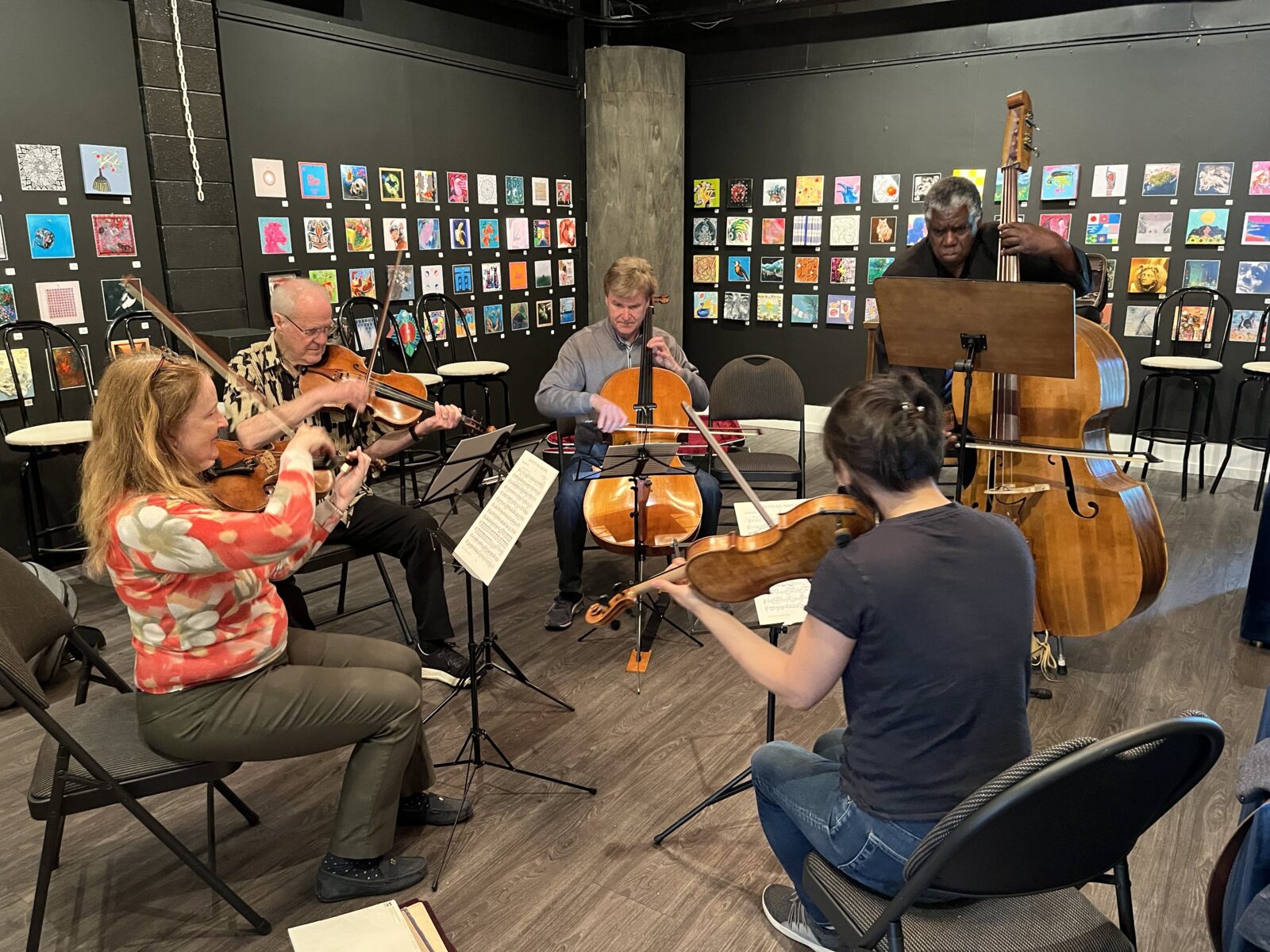
New guidelines for ACMP’s Workshop and Community Music Grant, deadline: October 24, 2025
ACMP's annual Chamber Music Workshop and Community Music grant cycle is open! Deadline: Friday, October 17. Read about the new guidelines and sign up for the Grant Information Session.Read More ↗
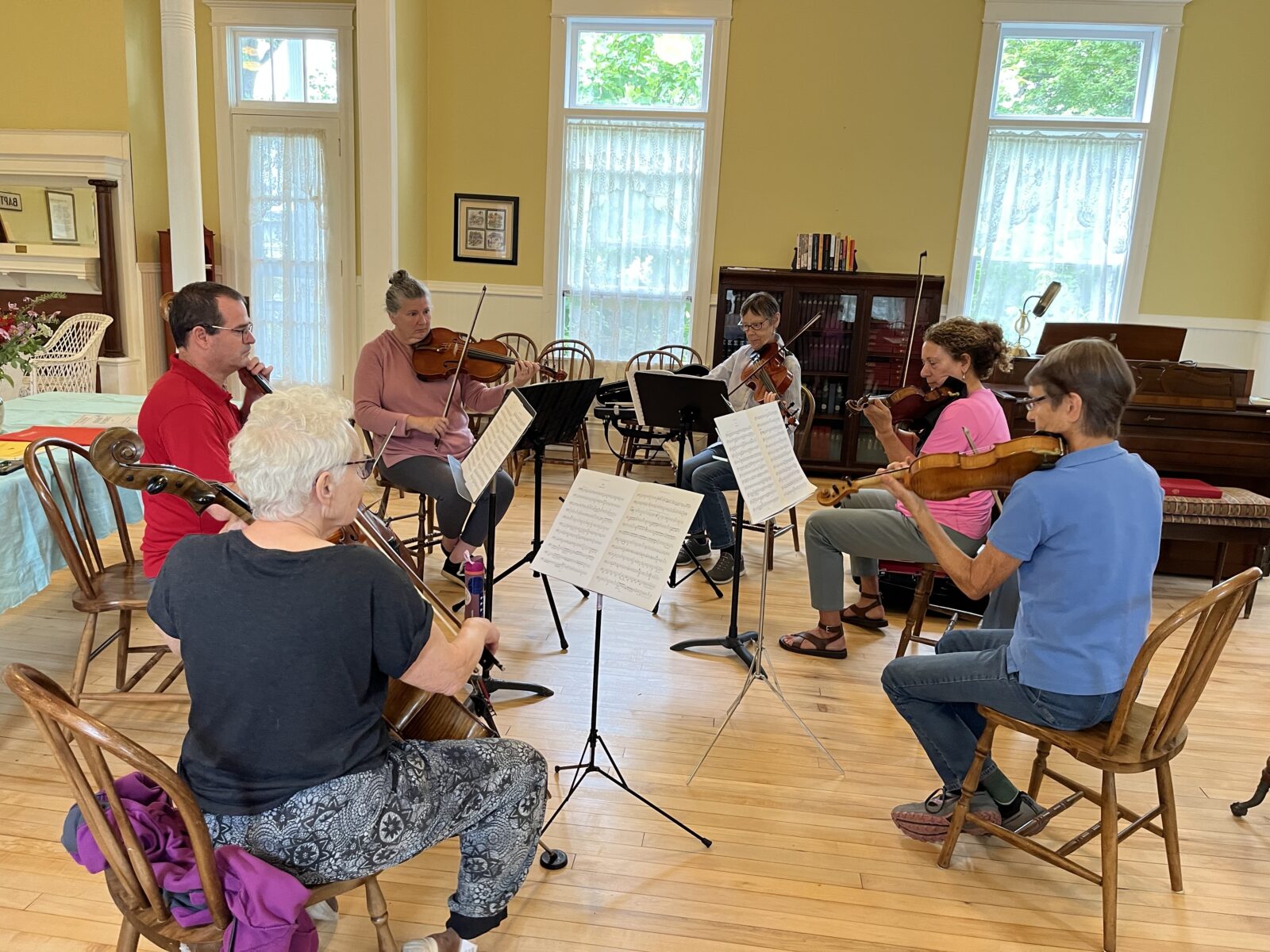
A weekend of music and renewal at Chautauqua
When you first set foot on the grounds of the Chautauqua Institution in southwestern New York, it’s easy to understand the lift in Arlene Hajinlian and Sonya Sutton’s voices when they speak about their summer homes, and why they would welcome a group of ACMP members for a weekend of music-making.Read More ↗
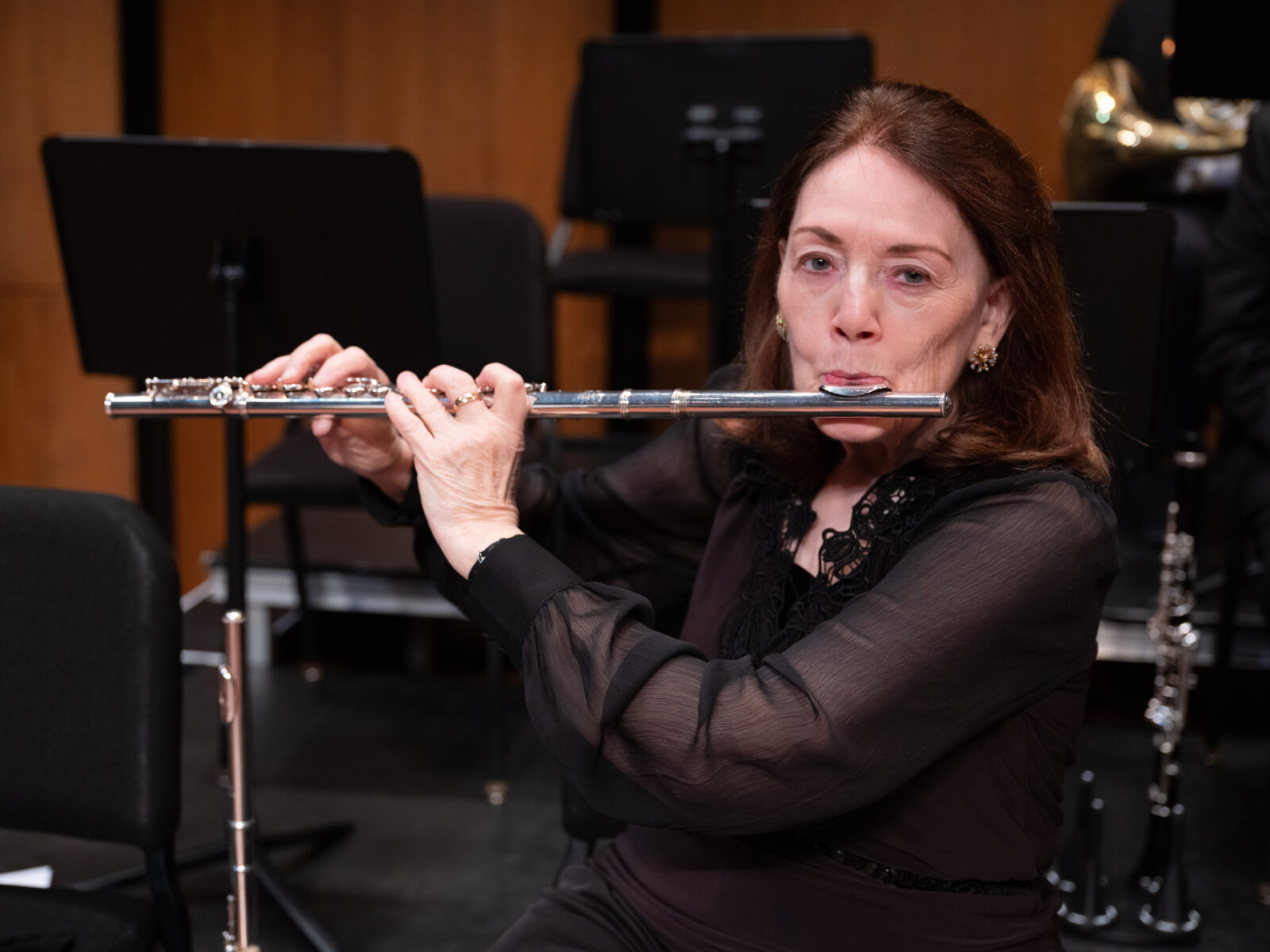
Optometrist by vocation, flutist by avocation
For someone who does not pay the rent as a musician, Pat Brown leads a full musical life with her flute. An optometrist by profession and a dedicated flutist, she has been a member of the Texas Medical Center Orchestra for more than 20 years, serving on the board and helping the group win national awards.Read More ↗